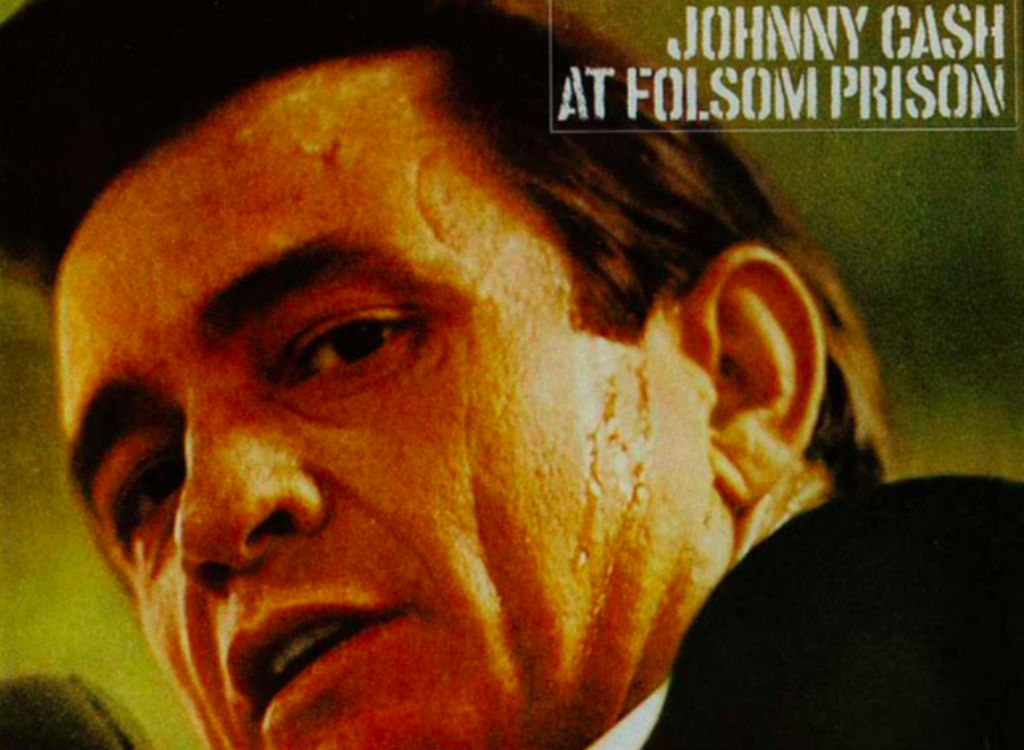

It was included in that concert to try it out-he did not know the words and on the filmed recording he can be seen regularly referring to a piece of paper. In his autobiography, Cash wrote that he had just received the song and only read over it a couple of times. Sue was named after his mother who died after giving birth to him. Hicks of Madisonville, Tennessee, a friend of John Scopes who agreed to be a prosecutor in what was to become known as the " Scopes Monkey Trial". The title might also have been inspired by the male attorney Sue K. The core story of the song was inspired by humorist Jean Shepherd, a close friend of Shel Silverstein, who was often taunted as a child because of his feminine-sounding name. Silverstein, for his part, does not utter any profanity in his original version, with Sue's father instead identifying himself as the "heartless hound" that named him Sue. The unedited version of the original San Quentin performance is included on later reissues of the At San Quentin album and on Cash's posthumous The Legend of Johnny Cash album. When performing the song live in later performances (such as in April 1970 at the White House and in 1994 at the Glastonbury Festival, for example), Cash would himself utter a bleep-censor sound in lieu of the word. The term "son of a bitch" was edited to "son of a gun" or altogether bleeped out in some versions. Both the edited and unedited versions are available on various albums and compilations. The term "son of a bitch" in the line "I'm the son of a bitch that named you Sue!" was censored in the Johnny Cash version both on single and the At San Quentin album, and the final line was also edited to remove the word "damn". The song is performed mostly in the speech-like style of talking blues rather than conventional singing. The song has an unusual A-A-B-C-C-B rhyme scheme, broken only to mark the midpoint and ending. With his lesson learned, Sue closes the song with a promise to name his son "Bill or George, any damn thing but Sue! I still hate that name!" Structure Because Sue's father knew that he would not be there for his son, he gave him the name, believing (correctly) that the ensuing ridicule would force him to "get tough or die." Learning this, Sue makes peace with his father and they reconcile. After the two have beaten each other almost senseless, Sue's father admits that he is the "heartless hound" ("son of a bitch" in the Johnny Cash version) that named him Sue and explains that the name was given as an act of love. Sue later locates his father at a tavern in Gatlinburg, Tennessee, during the middle of a summer season, and confronts him by saying, "My name is Sue! How do you do? Now you're gonna die!" This results in a vicious brawl that spills outdoors into a muddy street. Angered by the embarrassment and abuse that he endures in his life, he swears that he will find and kill his father for giving him "that awful name". Because of this, Sue grows up tough, mean and smartens up very quickly, though he frequently relocates due to the shame his name gives him. The song tells the tale of a young man's quest for revenge on a father who abandoned him at 3 years of age and whose only contribution to his entire life was naming him Sue, commonly a feminine name, which results in the young man suffering from ridicule and harassment by everyone he meets in his travels. 5 Chart performance (Johnny Cash version).Shel Silverstein's recording was released the same year as "Boy Named Sue", a single to the album Boy Named Sue (and His Other Country Songs), produced by Chet Atkins and Felton Jarvis. The track also topped the Billboard Hot Country Songs and Hot Adult Contemporary Tracks charts that same year and was certified Gold on August 14, 1969, by the RIAA. 2 in 1969, held out of the top spot by " Honky Tonk Women" by The Rolling Stones. The song became Cash's biggest hit on the Billboard Hot 100 chart and his only top ten single there, spending three weeks at No. Cash also performed the song (with comical variations on the original performance) in December 1969 at Madison Square Garden. The audio of the concert was later released on Cash's At San Quentin album. The concert was filmed by Granada Television for later television broadcast Carl Perkins played guitar on the performance. Cash was at the height of his success when he recorded the song live at California's San Quentin State Prison at a concert on February 24, 1969. " A Boy Named Sue" is a poem written by Shel Silverstein that was made popular by Johnny Cash. From the album Boy Named Sue (and His Other Country Songs)


 0 kommentar(er)
0 kommentar(er)
